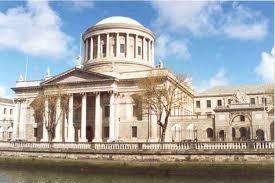
President Higgins’ decision to sign the Government’s abortion legislation, rather than refer it to the Supreme Court, gives rise to mixed feelings.
On the one hand, had he decided to refer the Bill, it would have delayed its implementation, and given some hope that it might never become law, or at least not in its present form.
On the other hand, had he referred it and had the Supreme Court found the Bill to be constitutional, it would have been invulnerable to any future constitutional challenge.
Furthermore, the legal team to challenge the Bill would have been appointed by the Supreme Court and by its nature, the challenge to the Bill would have been purely speculative, which would make the task of those attempting to argue for its unconstitutionality all the harder.
As things stand, the Bill is still open to being challenged, and in an Irish Times piece [1] last month, constitutional law expert, Professor Gerry Whyte of Trinity College outlined a series of possible areas where the Bill might be vulnerable.
Professor Whyte saw five possible avenues that a challenge might take. In the first instance he suggested that some might feel that the lack of time limits in the legislation “fails to provide adequate protection for the life of the unborn”.
Secondly, he points out that the legislation’s stance on religious freedom could be open to question, especially the failure of the Bill to consider the conscience implications for institutions.
Professor Whyte wrote: “The Bill is silent as to the position of institutions, as distinct from individuals, though some politicians have argued that publicly-funded hospitals could be required to act in a manner contrary to their religious ethos.
“However this fails to take proper account of the guarantee of religious autonomy in article 44.2.5.”
Professor Whyte does say that this guarantee of religious autonomy is “not absolute”.
He also refers to the argument made by former DPP Eamon Barnes, namely that while a woman is permitted to seek a review of an initial decision to refuse an abortion in non-emergency cases, there is no provision for a review of an initial decision to authorise an abortion.
He writes: “On the face of it this failure to afford equal protection to the right to life of the unborn seems contrary to the principle that its right to life is equal to that of the mother.
However, he adds: “That said, where an abortion is initially authorised it follows that there is a risk to the life of the mother and the court would have to consider whether it would be practicable, in such circumstances, to delay the abortion for a period of up to 10 days, the period allowed for the review in the Bill.”
Whyte also suggests that there is possible scope for a challenge to the Bill from a pro-abortion perspective, namely the argument (which is very moot) that the Constitution permits abortion in the case of a fatal foetal abnormality but the Bill does not.
“However the right to life vests in the unborn once implantation has taken place and so it does not seem possible to argue that a foetus with a fatal abnormality is not an “unborn” for the purpose of article 40.3.3 given that a diagnosis of fatal foetal abnormality can only be made some time after implantation,” he says.
“In addition it is difficult to find support for the view that the right to life of the unborn is contingent on the prospect of enjoying an independent existence outside the womb in the actual text of article 40.3.3. Consequently, I would argue that the failure of the Bill to address this situation is not unconstitutional.”
Intriguingly, Whyte also suggests a potentially more substantive ground on which to object to the Bill.
He writes: “Finally, some have suggested that the X-case is not actually a binding authority for the proposition that there is a right to an abortion where the mother is suicidal because of the pregnancy.
“Thus it is not beyond the bounds of possibility that lawyers challenging the Bill could argue that section providing for abortion where the mother is at risk of suicide is unconstitutional.”
In any event, the point is that the Bill could be challenged on a number of grounds. What would happen then is, of course, anyone’s guess.